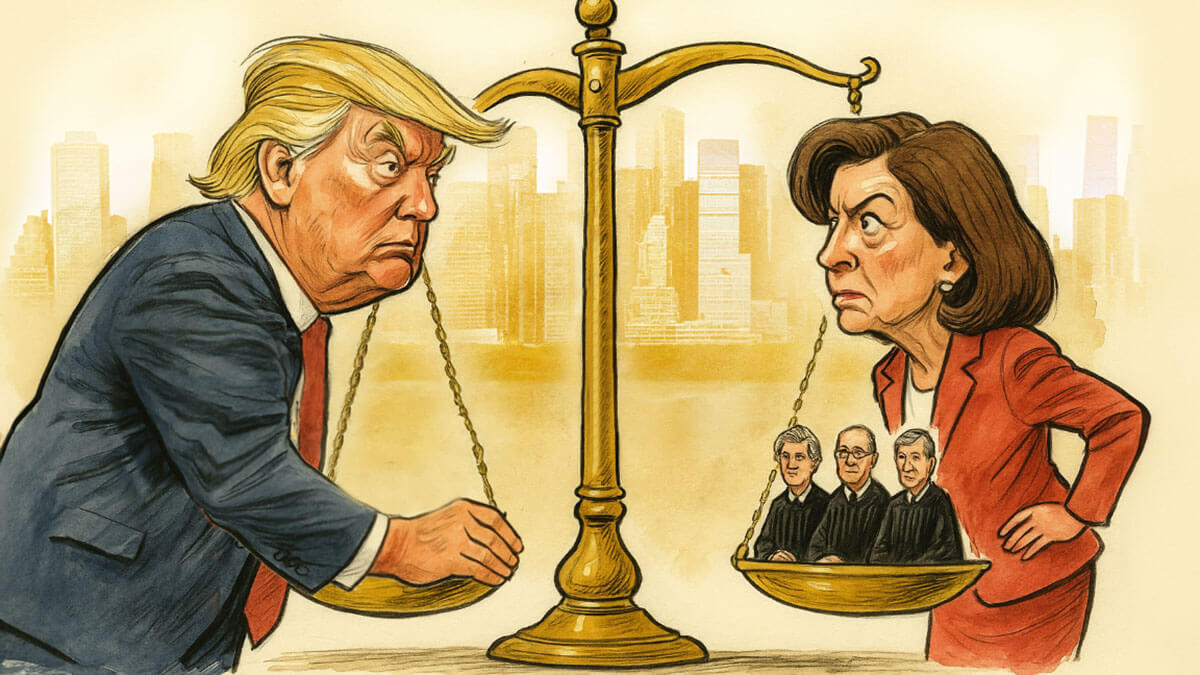
The political landscape was stirred when President Donald Trump leveled serious accusations against New York Governor Kathy Hochul, alleging that during a February meeting in the Oval Office, she claimed to have control over the judges involved in his current legal appeal. According to Trump, Hochul's remarks suggested she could use her influence to affect the outcome of his appeal regarding a $480 million fraud penalty in New York courts.
White House insiders relayed that the contentious exchange took place amidst policy discussions, which included the controversial Manhattan congestion tax. A legal insider with knowledge of the conversation shared that Hochul pressed Trump to concede on several matters: withdrawing opposition to the congestion tax, terminating a gas pipeline project, and approving federal funds for wind energy initiatives and Penn Station renovations. All the while, the source claims, she held the appeal over his head as a form of leverage.
"It feels like extortion and blackmail," the source conveyed to the press, highlighting the gravity of the allegations.
Governor Hochul, however, categorically refuted the accusations through her spokesperson, Avi Small, who stated, "Governor Hochul has never said this, or anything similar, to President Trump or anyone." Small underscored Hochul's respect for the judiciary's independence and her adherence to not interfering with ongoing legal proceedings. He suggested that the allegations stemmed from either a gross misunderstanding or a deliberate deception with political motives.
Countering the denial, a Trump administration official emphasized the improbability of Hochul admitting to such attempts to extort the President, also accusing her of overseeing the "weaponization of justice" in New York State.
"It feels like extortion and blackmail"
The appeal in question originates from a decision by New York Supreme Court Judge Arthur Engoron in February 2024, ordering Trump to pay $364 million for purportedly exaggerating his net worth to secure favorable bank loans. The amount has since ballooned to over $480 million due to accruing interest.
Legal commentators have pointed out the abnormal delay in adjudicating Trump's appeal, and prominent attorney Joe Tacopina, who has represented Trump, branded the 14-month wait as "insane" and discriminatory towards Trump. During oral arguments in September 2024, several judges openly questioned the case's merits; however, no decision has been forthcoming for seven months.
As Governor, Hochul wields substantial influence over judicial appointments in New York, though she did not appoint the judges overseeing Trump's appeal. Despite this, she promoted Judge Renwick to a higher judicial position in 2023, and all judges depend on the Governor for reappointment every five years, which could be perceived as a point of influence.
The protracted legal process has already inflicted financial strain on Trump, who will not recuperate the millions expended on securing a bond for the appeal, even if victorious. His only option for recouping these losses would be to sue the state.
Amidst these legal battles, New York Attorney General Letitia James, who initiated the case against Trump, has publicly mocked the growing daily interest on the penalty. Trump's legal representatives have accused James of politicizing the justice system against him, citing her campaign promises to target Trump. In response, Trump has condemned James as a "racist prosecutor" pursuing a politically motivated "witch hunt."





